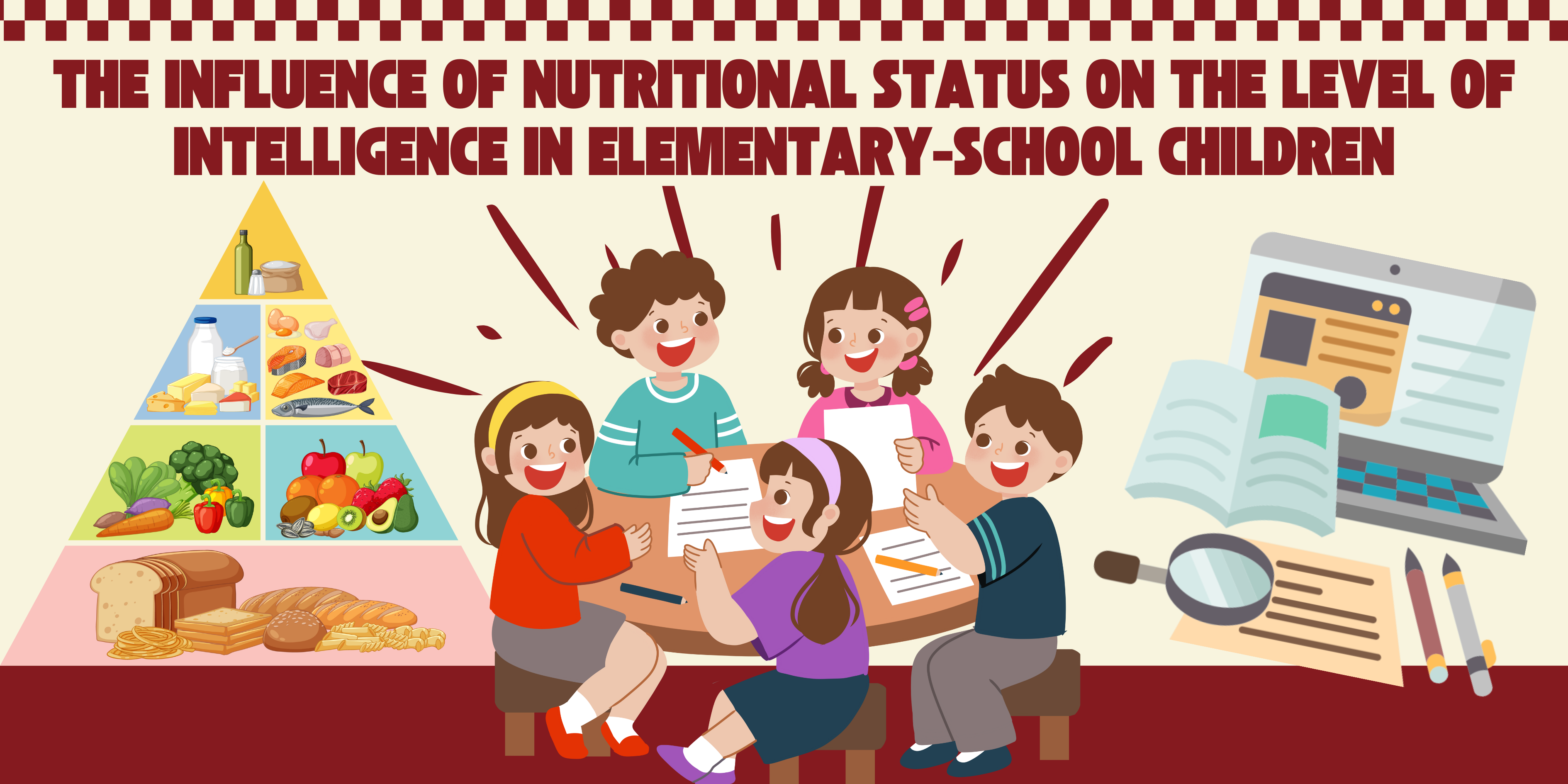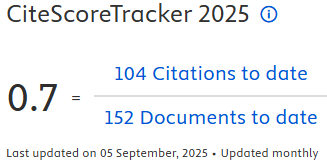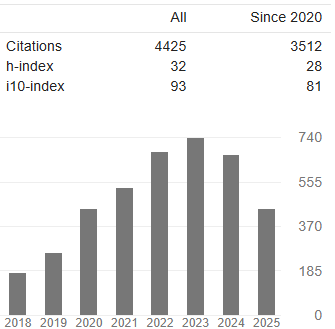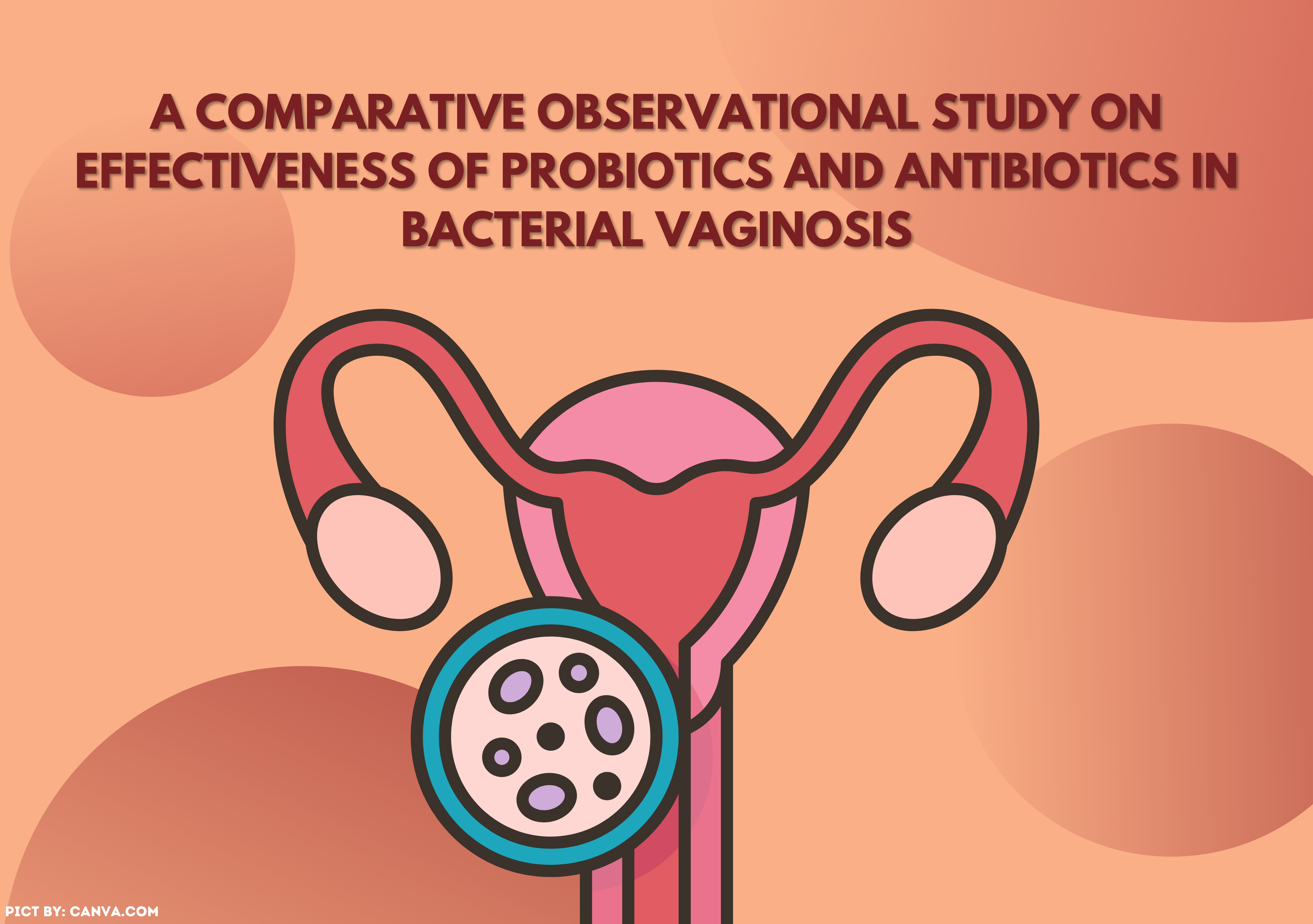THE INFLUENCE OF NUTRITIONAL STATUS ON THE LEVEL OF INTELLIGENCE IN ELEMENTARY-SCHOOL CHILDREN

Downloads
Introduction: Intelligence level is a person's ability to think and respond to things logically, purposefully, and to control and manage the environment more effectively. Nutritional status and parenting of children affect the level of child's carelessness. Basic Health Research (Riskesdas) 2018 showed the nutritional status of children aged 5-12 years, where 26.8% were anemic (children aged 5-14 years), 23.6% were short, 10.8% were fat, 9.2% were think, and 9.2% were obese. Aims: The researcher hopes to determine how parenting and nutritional status affect elementary school students' Intelligence Quotient (IQ). Methods: Purposive sampling strategies are used in this cross-sectional study design. The number of samples in this study is 77 samples. Results: The result found the effect of nutritional status on children's intelligence level (p=0.006; OR 95% CI 4.17 (1.51-11.52) vs Parenting with intelligence level (p=0.343; OR 95% CI 1.35 (0.72-2.54). Nutritional status is something that greatly affects the development of a child's brain so that it can be ensured that good nutritional intake can increase the level of intelligence of children. Conclusion: Therefore, it is necessary to increase counseling programs and also continue existing government programs, such as counseling for mothers or parents related to balanced nutrition, providing counseling on making balanced nutritional foods, increasing the budget in providing supplementary feeding that contains high protein, and hence, the Sustainable Development Goals (SDGs) program to reduce the malnutrition rate can be achieved in order to create healthy and intelligent children for the nation's successors.
Adolphus, K., Lawton, C. L., Dye, L., Defeyter, M. A., Wendy, N., & Oddy, H. (2013). The Effects Of Breakfast On Behavior And Academic Performance In Children And Adolescents. Frontiers In Human Neuroscience, 7, 425. https://doi.org/10.3389/fnhum.2013.00425
Ahmad, H., Antoni, A., & Muhamad, Z. (2023). Edukasi Gizi Seimbang Pada Anak Di SD Negeri Pijorkoling Kota Padangsidimpuan. Jurnal Ilmiah Pengabdian Masyarakat Bidang Kesehatan (Abdigermas), 1(1). https://doi.org/10.58723/abdigermas.v1i1.2
Ambariani, A., & Rakimahwati, R. (2023). Pengaruh Pola Asuh Orangtua Terhadap Pembentukan Karakter Anak Usia Dini. Jurnal Obsesi : Jurnal Pendidikan Anak Usia Dini, 7(5). https://doi.org/10.31004/obsesi.v7i5.4326
Apriluana, G., & Fikawati, S. (2018). Analisis Faktor-Faktor Risiko Terhadap Kejadian Stunting Pada Balita (0-59 Bulan) Di Negara Berkembang Dan Asia Tenggara. Media Penelitian Dan Pengembangan Kesehatan, 28(4). https://doi.org/10.22435/mpk.v28i4.472
Health Development Policy Agency. (2023). Indonesian Health Survey 2023.
Bi, X., Yang, Y., Li, H., Wang, M., Zhang, W., & Deater-Deckard, K. (2018). Parenting Styles And Parent-Adolescent Relationships: The Mediating Roles Of Behavioral Autonomy And Parental Authority. Frontiers In Psychology, 9(NOV), 418494. https://doi.org/10.3389/fpsyg.2018.02187
Bradley, M., Melchor, J., Carr, R., & Karjoo, S. (2023). Obesity And Malnutrition In Children And Adults: A Clinical Review. Obesity Pillars, 8, 100087. https://doi.org/10.1016/j.obpill.2023.100087
Dipasquale, V., Cucinotta, U., & Romano, C. (2020). Acute Malnutrition In Children: Pathophysiology, Clinical Effects And Treatment. Nutrients, 12(8), 2413. https://doi.org/10.3390/nu12082413
Endrinikapoulos, A., Afifah, D. N., Mexitalia, M., Andoyo, R., Hatimah, I., & Nuryanto, N. (2023). Study Of The Importance Of Protein Needs For Catch-Up Growth In Indonesian Stunted Children: A Narrative Review. SAGE Open Medicine, 11, 20503121231165560. https://doi.org/10.1177/20503121231165562
Esti, R. (2023). The Relationship Of Parenting Patterns With Student Learning Outcomes. International Journal Of Pedagogy, 1(01), 20–27. https://doi.org/10.31849/ijp.v1i01.13766
Hirshkowitz, M. (2020). Getting More From Less. In Sleep Medicine (Vol. 67). https://doi.org/10.1016/j.sleep.2019.01.001
’Ibad, M. R., Widowati, S., Arfianto, M. A., Fikri, Z., & Rahma, A. A. (2023). The Relationship Between Parenting Style With Adolescent Identity Development In Karangploso District, Malang Regency Indonesia. Jurnal Keperawatan, 14(01), 11–16. https://doi.org/10.22219/jk.v14i01.23156
Ivanovic, D. M., Leiva, B. P., Pérez, H. T., Olivares, M. G., Díaz, N. S., Urrutia, M. S. C., Almagià, A. F., Toro, T. D., Miller, P. T., Bosch, E. O., & Larraín, C. G. (2004). Head Size And Intelligence, Learning, Nutritional Status And Brain Development: Head, IQ, Learning, Nutrition And Brain. Neuropsychologia, 42(8). https://doi.org/10.1016/j.neuropsychologia.2003.11.022
Jiang, F., Li, G., Ji, W., Zhang, Y., Wu, F., Hu, Y., Zhang, W., Manza, P., Tomasi, D., Volkow, N. D., Gao, X., Wang, G. J., & Zhang, Y. (2022). Obesity Is Associated With Decreased Gray Matter Volume In Children: A Longitudinal Study. Cerebral Cortex (New York, NY), 33(7), 3674. https://doi.org/10.1093/cercor/bhac300
Ministry Of Education And Culture, Web Manager. (2020). Ministry Of Education And Culture Of The Republic Of Indonesia. In 2020.
Ministry Of Health Republic Indonesia. (2014). Regulation Of The Minister Of Health Of The Republic Of Indonesia Number 41 Of 2014.
King, K. A., Vidourek, R. A., & Merianos, A. L. (2016). Authoritarian Parenting And Youth Depression: Results From A National Study. Journal Of Prevention & Intervention In The Community, 44(2), 130–139. https://doi.org/10.1080/10852352.2016.1132870
Kobylińska, M., Antosik, K., Decyk, A., & Kurowska, K. (2021). Malnutrition In Obesity: Is It Possible? Obesity Facts, 15(1), 19. https://doi.org/10.1159/000519503
Mahyiddin, Z., Al’Abqary, R., & Fajri, Z. (2019). Korelasi Status Gizi Terhadap Tingkat Intelligence Quotient Pada Anak Di Min Tungkop Aceh Besar. Bunayya: Jurnal Pendidikan Anak, 5(2).
Mulyana, H., Hidayat, F. M., & Hidayanti, R. (2021). (Intellegence Quotient) Anak Usia Sekolah Dasar : A Literatur Review. Jurnal Kesehatan Indra Husada, 9(1). https://doi.org/10.36973/jkih.v9i1.307
Nur Utami, A. C., & Raharjo, S. T. (2021). Pola Asuh Orang Tua Dan Kenakalan Remaja. Focus : Jurnal Pekerjaan Sosial, 4(1). https://doi.org/10.24198/focus.v4i1.22831
Papotot, G. S., Rompies, R., & Salendu, P. M. (2021). Pengaruh Kekurangan Nutrisi Terhadap Perkembangan Sistem Saraf Anak. Jurnal Biomedik:JBM, 13(3). https://doi.org/10.35790/jbm.13.3.2021.31830
Puspita, G., Susyanto, B. E., & Aprilia, S. (2021). Sosialisasi Persepsi Remaja Tentang Body Image, Pola Aktivitas Fisik Dan Pengukuran Antropometri. Prosiding Seminar Nasional Program Pengabdian Masyarakat. https://doi.org/10.18196/ppm.39.130
Puspita, T., Flora, R., Zulkarnain, M., & Apulembang, Y. A. (2021). Hubungan Pola Asuh Orang Tua Dengan Tingkat Kecerdasan Pada Anak Sekolah Dasar Di Kecamatan Tuah Negeri Kabupaten Musi Rawa. JPP (Jurnal Kesehatan Poltekkes Palembang), 16(2). https://doi.org/10.36086/jpp.v16i1.667
Rahmaulina, N. D., & Hastuti, D. (2008). Hubungan Pengetahuan Ibu Tentang Gizi Dan Tumbuh Kembang Anak Serta Stimulasi Psikososial Dengan Perkembangan Kognitif Anak Usia 2-5 Tahun. Jurnal Ilmu Keluarga Dan Konsumen, 1(2). https://doi.org/10.24156/jikk.2008.1.2.166
Rahmi H.G, I. (2017). Telaah Faktor-Faktor Yang Mempengaruhi Status Gizi Balita Di Kota Padang Berdasarkan Berat Badan Per Tinggi Badan Menggunakan Metode Cart. Eksakta: Berkala Ilmiah Bidang MIPA, 18(02). https://doi.org/10.24036/eksakta/vol18-iss02/59
Rizka, S. M., & Bacotang, J. Bin. (2019). THE RELATIONSHIP BETWEEN PARENTING STYLES AND CHILDREN’S SOCIAL SKILLS. International Conference On Early Childhood Education, 0(0), 258–262.
Ruswati, Leksono, A. W., Prameswary, D. K., Pembajeng, G. S., Inayah, Felix, J., Dini, M. S. A., Rahmadina, N., Hadayna, S., Roroputri, T., Aprilia, Hermawati, E., & Ashanty. (2021). Risiko Penyebab Kejadian Stunting Pada Anak. Jurnal Pengabdian Kesehatan Masyarakat: Pengmaskesmas, 1(2).
Sahalessy, Y. C. (2020). Hubungan Pola Asuh Orang Tua Dengan Keterampilan Sosial Remaja Di Kota Depok. GLOBAL HEALTH SCIENCE (GHS), 5(4). https://doi.org/10.33846/ghs5404
Said, A. N., & Rahmawati, D. (2018). Pengaruh Kecerdasan Intelektual, Kecerdasan Emosional Dan Kecerdasan Spiritual Terhadap Sikap Etis Mahasiswa Akuntansi (Studi Empiris Pada Mahasiswa Prodi Akuntansi Universitas Negeri Yogyakarta). Nominal, Barometer Riset Akuntansi Dan Manajemen, 7(1). https://doi.org/10.21831/nominal.v7i1.19357
Sujana, I. K., Suardikha, I. M. S., & Laksmi, P. S. P. (2020). Whistleblowing System, Competence, Morality, And Internal Control System Against Fraud Prevention On Village Financial Management In Denpasar. E-Jurnal Akuntansi, 30(11). https://doi.org/10.24843/EJA.2020.v30.i11.p06
Sulastri, M. (2021). Hubungan Pola Asuh Ibu Dengan Tingkat Kecerdasan Anak Usia Dini Di Ra. An Najah Kota Tasikmalaya. Jurnal Mitra Kencana Keperawatan Dan Kebidanan, 5(1). https://doi.org/10.54440/jmk.v5i1.117
Sumiaty, I. H. (2018). Pengaruh Status Gizi Dengan Tingkat Kecerdasan Pada Siswa/I Sekolah Dasar Di Kota Makassar. Seminar Nasional Sinergitas Multidisiplin Ilmu Pengetahuan Dan Teknologi (SMIPT), 1(April).
Sunain, S. (2017). Pengaruh Tingkat Pendidikan Orang Tua Terhadap Tingkat Kecerdasan Dan Keaktifan Siswa Dari Kelas Satu Sampai Dengan Kelas Enam Pada Semester I. Pedagogia : Jurnal Pendidikan, 6(2). https://doi.org/10.21070/pedagogia.v6i2.942
Susilaningrum, R., Utami, S., Taufiqurrahman, T., & Nursalam, N. (2020). Development Of Interprofessional Collaboration Model To Manage Stunting In Toddler. International Journal Of Psychological Rehabilitation, 24, 1475–7192.
Tjokromihardjo, J. F. W., & Indrawati, E. S. (2020). Hubungan Antara Pola Asuh Otoriter Dengan Intensi Agresi Pada Siswa Kelas Xi Smk Hidayah Semarang. Jurnal EMPATI, 8(4). https://doi.org/10.14710/empati.2019.26521
Usnia, U., Sunarsih, S., & Banudi, L. (2023). Relationship Between Nutritional Status And Intelligence Level Of Elementary School Children In Benu-Benua Village, Kendari City. Waluya The International Science Of Health Journal, 2(2). https://doi.org/10.54883/28292278.v2i2.78
Veryawan, Rabitah Hanum Hasibuan, & Suhelayanti. (2022). Pemahaman Pola Asuh Positif Bagi Anak Usia Dini. Transformatif : Jurnal Pengabdian Masyarakat, 3(1). https://doi.org/10.22515/tranformatif.v3i1.4711
Wang, L., Xian, Y., Dill, S. E., Fang, Z., Emmers, D., Zhang, S., & Rozelle, S. (2022). Parenting Style And The Cognitive Development Of Preschool-Aged Children: Evidence From Rural China. Journal Of Experimental Child Psychology, 223, 105490. https://doi.org/10.1016/j.jecp.2022.105490
World Health Organization. (2024). Fact Sheets Malnutrition.
Copyright (c) 2025 The Indonesian Journal of Public Health

This work is licensed under a Creative Commons Attribution-NonCommercial-ShareAlike 4.0 International License.
- The authors agree to transfer the transfer copyright of the article to The Indonesian Journal of Public Health effective if and when the paper is accepted for publication.
- Authors and other parties are bound to the Creative Commons Attribution-NonCommercial-ShareAlike 4.0 International License for the published articles, legal formal aspect of journal publication accessibility refers to Creative Commons Attribution-NonCommercial-ShareAlike 4.0 International License (CC BY-NC-SA), implies that:
- Attribution ” You must give appropriate credit, provide a link to the license, and indicate if changes were made. You may do so in any reasonable manner, but not in any way that suggests the licensor endorses you or your use.
- NonCommercial ” You may not use the material for commercial purposes.
- ShareAlike ” If you remix, transform, or build upon the material, you must distribute your contributions under the same license as the original.































